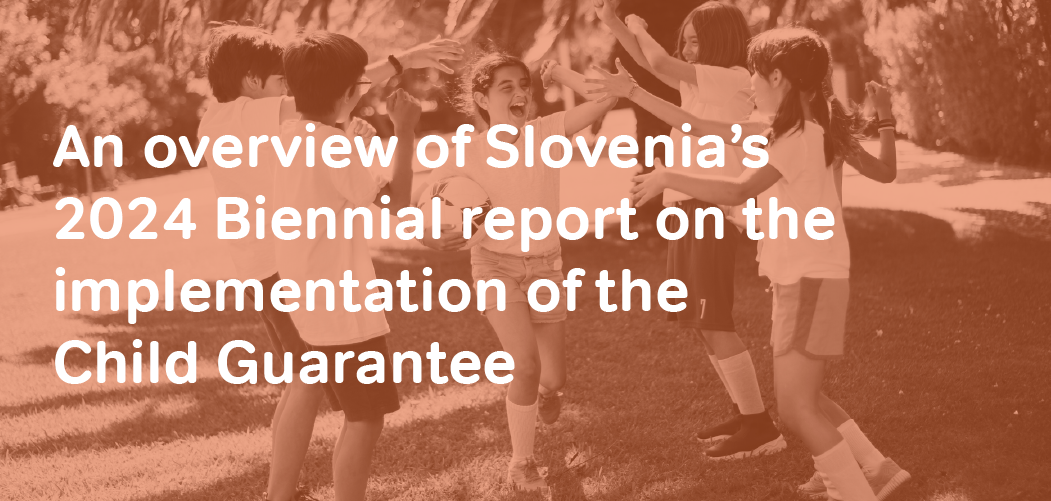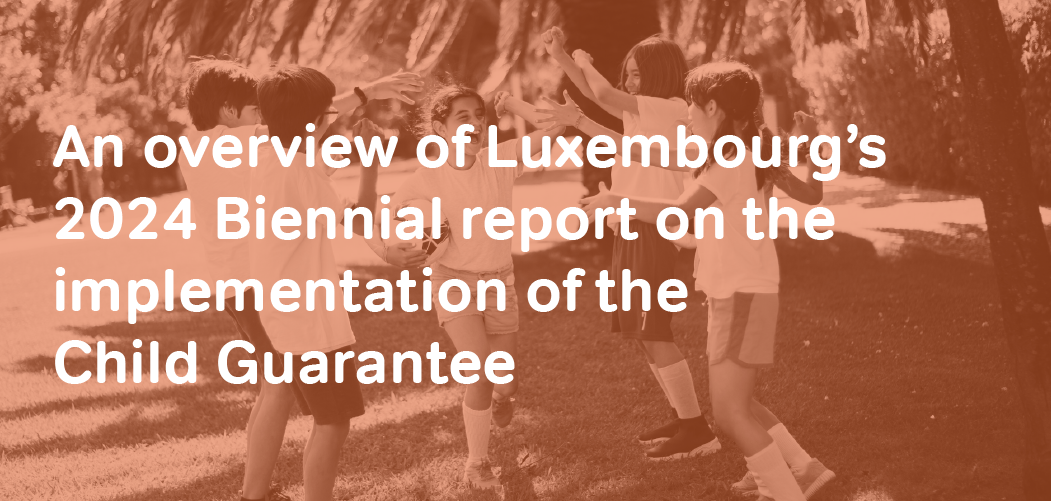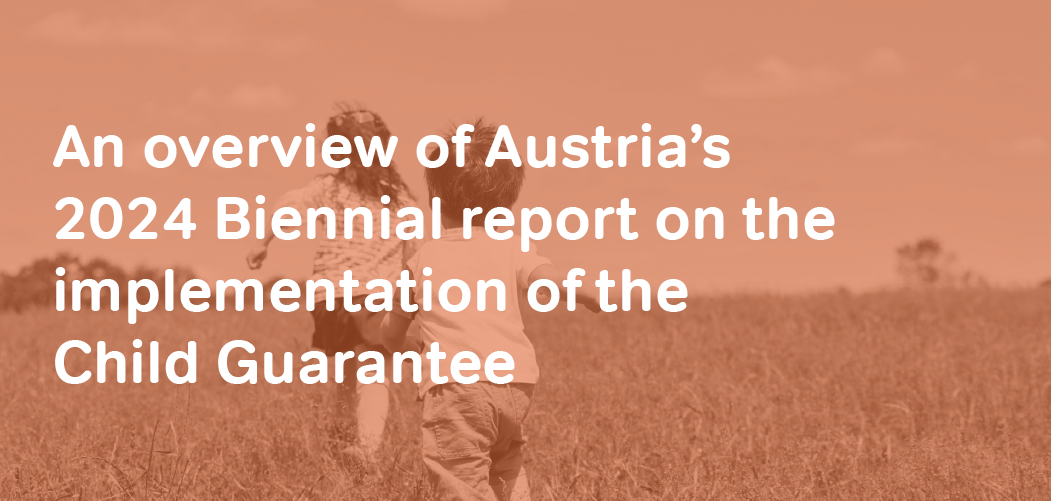Slovenia's 2024 Biennial report on the implementation of the Child Guarantee – an overview
Three years after the adoption of the European Child Guarantee, EU Member States are releasing the first report on its implementation. The reports offer an overview of the context, target groups, and services established to execute the European Child Guarantee’s National Action Plans. Additionally, they include sections covering indicators, financing details, and insights and conclusions gleaned from the implementation process.
The Slovenian Government submitted its 2024 Biennial report on the implementation of the Child Guarantee in October 2024.
The report focuses on:
- Early childhood education and care: Pre-school education fees are based on family income. Efforts focus on integrating vulnerable children, particularly Roma, through financial incentives and specialised support.
- Education and school-based activities: Free textbooks for the first years of primary school, with a lending system for later years. Support is provided for school transport, along with subsidised extracurricular activities and school excursions. Additional support is available for children with a migrant background and children from ethnic minorities as well as children with disabilities.
- Healthy meal each school day: Schools offer free morning snacks for low-income students, subsidised kindergarten meals, and free lunches for eligible primary students.
- Healthcare: All children have free access healthcare, with expanded mental health services, psychological counselling, and addiction prevention, though challenges remain with wait times and disparities in access for low-income and Roma children. There are 22 child and adolescent mental health centres in Slovenia.
- Healthy nutrition: Promoting healthy school meals through initiatives like the fruit and milk scheme.
- Adequate housing: Investments in public rental housing, rent subsidies, and housing reforms to support low-income families, with an anti-homelessness strategy in progress. In October 2023, the government adopted a decree on ensuring suitable accommodation, care and treatment of unaccompanied minors.
- Social inclusion: A cost-of-living allowance was introduced for families entitled to child benefit. A special interdepartmental government working group on Roma was set up in 2023 to address the issue of social exclusion of Roma from several angles.
Check out the rest of the 2024 Biennial reports on the implementation of the Child Guarantee!
Eurochild and its members will continue to call on Member States to release their biennial reports and work to ensure the Child Guarantee National Action Plans help end child poverty.
This summary provides key highlights from the Biennial report on the Child Guarantee implementation in Slovenia published in October 2024. It is not exhaustive or evaluative.





